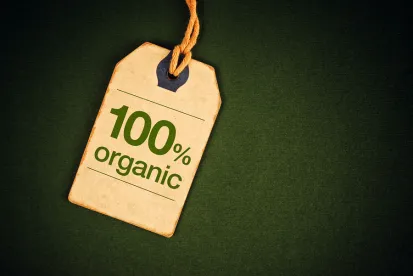-
On September 2, 2022, the USDA Agricultural Marketing Service (AMS), which administers the National Organic Program (NOP), issued an advanced notice of proposed rulemaking (ANPR) in which it requested the public’s comments on alternatives to the current organic regulations on inert ingredients (inerts). 87 Fed. Reg. 54173.
-
Currently, the organic regulations allow EPA List 3 and List 4 inerts to be used in pesticide products when the product includes active ingredients permitted by the organic regulations (List 3 substances may only be used in passive pheromone dispensers in crop production). 7 CFR 205.601(m) and 7 CFR 205.603(e). List 3 inerts are of unknown toxicity, List 4 inerts pose a minimal risk or will not adversely public health or the environment, while Lists 1-2, which are not allowed as inerts in the organic program, pose a greater toxicological concern. EPA Categorized Lists of Inert Ingredients. Although the lists were originally added to the organic program to limit disruption to the organics industry and limit the administrative burden of evaluating each substance individually, the EPA has since moved away from the categorical list system and the EPA lists are no longer updated.
-
AMS has proposed five alternatives:
-
Replace the reference to List 4 with an allowance for inerts allowed by EPA regulations in “minimum risk pesticides.” These inerts are listed in Table 2 at 40 CFR 152.25(f).
-
Replace the reference to List 4 with an allowance for an inert that is exempt from the requirement of a tolerance. These are listed at 40 CFR, part 180, subpart D (active ingredients listed in these sections would not be permitted).
-
Replace the reference to List 3 with reference to the current framework for inerts in “semiochemical dispensers,” which are chemicals released by plants and animals which modify the behavior of the receiving species. Special conditions for the exemption of these ingredients appear at 40 CFR 180.1122.
-
Replace List 3 and/or List 4 with individualized listings in the organic regulations following review by the National Organic Standards Board (NOSB).
-
Maintain the status quo (no action).
-
-
The ANPR includes a detailed list of questions which AMS hopes to receive feedback on, including (1) the disadvantages of relying on external lists, (2) NOSB and AMS resource constraints (in conducting individual evaluations), and (3) statutory requirements under the Organic Foods Production Act. Comments are due by November 1, 2022.
Feedback Sought on Regulation of Inert Ingredients in Pesticides for Organic Production
Tuesday, September 13, 2022
Current Public Notices
Published: 9 September, 2025
Published: 9 September, 2025
Published: 8 September, 2025
Published: 8 September, 2025
Published: 4 September, 2025
Published: 3 September, 2025
Published: 28 August, 2025
Published: 25 August, 2025
Published: 25 August, 2025
Published: 22 August, 2025
Published: 20 August, 2025
Published: 20 August, 2025
Published: 18 August, 2025
Published: 18 August, 2025
Published: 11 August, 2025



 />i
/>i

